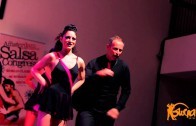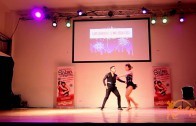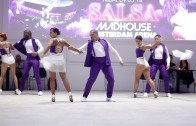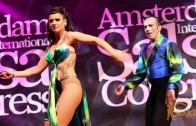Babies don’t need to learn the ability to move to a rhythm, according to a new study. They are born with it.
Babies love a beat, according to a new study that found dancing comes naturally to infants.
The research showed babies respond to the rhythm and tempo of music, and find it more engaging than speech.
The findings, based on a study of 120 infants between 5 months and 2 years old, suggest that humans may be born with a predisposition to move rhythmically in response to music.
“Our research suggests that it is the beat rather than other features of the music, such as the melody, that produces the response in infants,” said researcher Marcel Zentner, a psychologist at the University of York in England. “We also found that the better the children were able to synchronize their movements with the music, the more they smiled.”
To test babies’ dancing disposition, the researchers played recordings of classical music, rhythmic beats and speech to infants, and videotaped the results. They also recruited professional ballet dancers to analyze how well the babies matched their movements to the music.
During the experiments, the babies were sitting on a parent’s lap, though the adults had headphones to make sure they couldn’t hear the music and were instructed not to move.
The researchers found the babies moved their arms, hands, legs, feet, torsos and heads in response to the music, much more than to speech.
So play some Salsa, Bachata, Kizomba, Merengue to your kids and let them feel the #Gwepaaa




